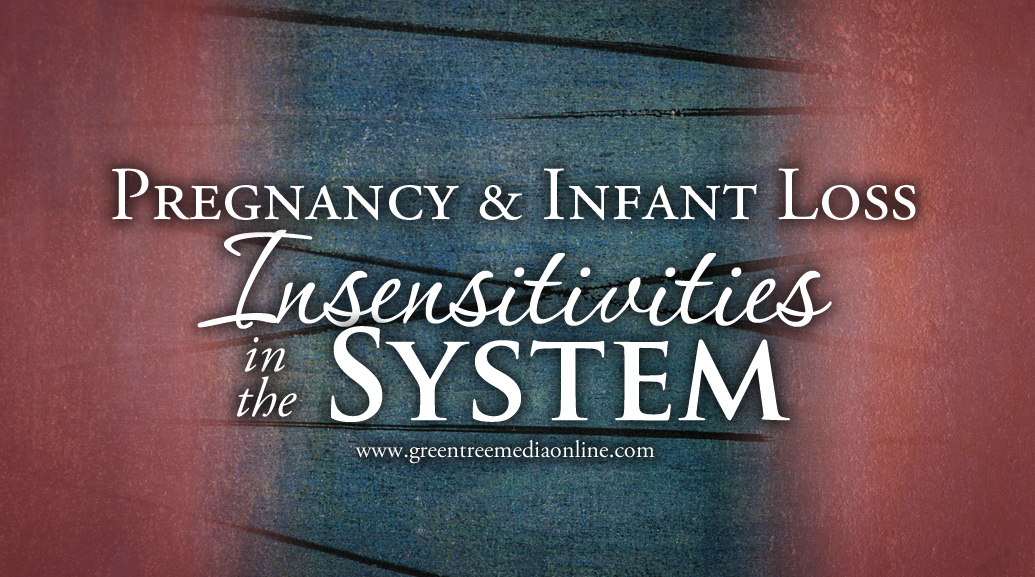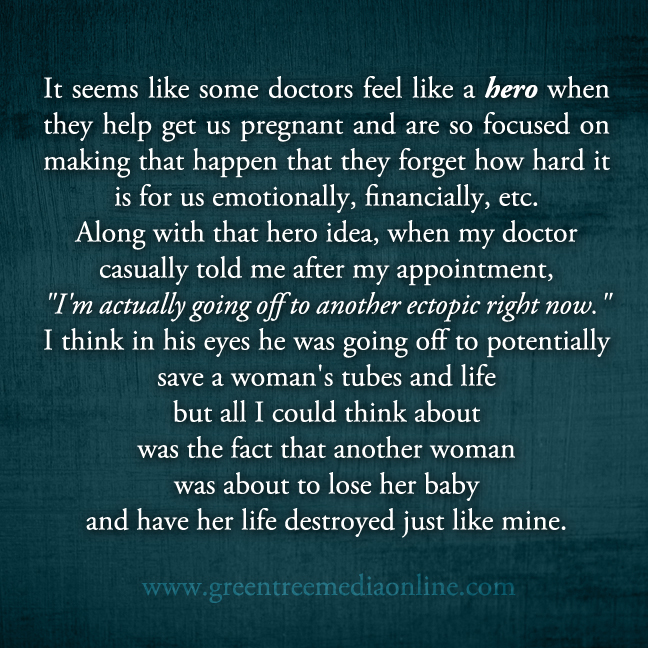Pregnancy & Infant Loss Awareness – Insensitivities in the System

I posted last week a little something for Pregnancy and Infant Loss Awareness month. That same night we had our bi-monthly support group meeting and on the drive home I started thinking of some of those things that you just don’t know unless you’ve been through it. And for the record – I have not experienced these things. They are things I’ve learned about through the experiences of others. And I think it’s beneficial for others to see these flaws or insensitivies within the system too.
Nothing is done for a miscarriage
Many miscarriages occur during the first trimester. At this time in the pregnancy – it doesn’t matter how early she knows – nothing will be (or can be) done for a miscarriage. You can call your OB or even go to the ER, but nothing can stop what’s happening. This can feel like the doctors and medical professionals you are relying on don’t care about you or your baby. You feel like if they would just do something – anything – maybe they could stop this.
Miscarriages or early pregnancy losses are often labelled as spontaneous abortions
Losing a baby is hard enough… to see the words “spontaneous abortion” written on your medical records is painful. The word abortion feels like it has choice attached to it and for the mother who has unwillingly lost a child, who is often in the midst of grief – it can feel like a knife to the chest. This needs to change.
Not recognizing the baby as a baby
I cannot even begin to tell you the number of women I’ve encountered who have shared how doctors approached their situation or talked about their baby in a way that ignored the child’s humanity. Doctor’s have referred to the baby as “the cells” or just generally not acknowledged that this is in fact a child. For the couple who is losing a child, this is devastating.
Talking as though the baby has already died
I understand how in certain instances the loss may be imminent. In the case of an early miscarriage, there is nothing a medical professional can do. However, whether the loss seems certain or not – a medical professional should not be talking about a baby as though they are already gone. And this is exactly what I’ve heard time and again. Women recounting their shock and devastation at hearing their child might not live or that they were losing their baby and then to have that information IMMEDIATELY followed up with next steps after the child has passed. It not only shows a lack of compassion, but indicates that the professionals have given up and have no plans to help fight for this child’s life.
After a loss some protocol requires recovery on the maternity floor
If medical intervention is required, in the instance of a ruptured tube during an ectopic pregnancy for example, it is standard portocol for women to recover on the maternity floor. Just pause for a moment and imagine how painful that is. To have just lost your baby and then have to lay in a bed listening to crying babies and women giving birth. This is something that needs to change too.
A general lack of compassion
Overall, the unfortunate reality I hear from women is an experience of a lack of compassion from medical professionals. Now I’ll admit – I cannot imagine how hard this news is to deliver and that it may be necessary for some professionals to compartmentalize – to separate themselves from the reality. However, in taking an oath to do no harm, considering the emotions of the individuals in crisis is necessary. I’d argue that it’s not hard to consider some simple changes in conversation and showing some simple signs of compassion. Saying something like “better luck next time” to the woman you’ve just informed she’s miscarried her baby isn’t a statement of encouragement.
My point with this post isn’t to point a finger of blame but rather to highlight simple ways that an already painful situation is often made worse. We all say the wrong things sometimes. I certainly don’t expect perfection and I don’t think most of my friends do either. But I’ll be honest and admit the number of people who’ve shared similar stories about the insensitivities they’ve experienced in the system during the process of losing their child is pretty disappointing especially when it seems like some of these things could so easily be avoided.
I want to finish this post with a quote from my friend Kristi because I think it’s a pretty powerful statement about the separation that often occurs between doctor and patient.
“It seems like some doctors feel like a hero when they help get us pregnant and are so focused on making that happen as soon as possible that they forget how hard it is emotionally, financially, etc. for us. Along with that hero idea is when my doctor casually told me after my appointment, “I’m actually going off to another ectopic right now.” I think in his eyes he was going off to potentially save a woman’s tubes and life but all I could think about was the fact that another woman was about to lose her baby and have her life destroyed just like mine.”

 Previous post
A Trip to the Pumpkin Patch
Previous post
A Trip to the Pumpkin Patch
 Next post
Seven Years Past the Fire
Next post
Seven Years Past the Fire
